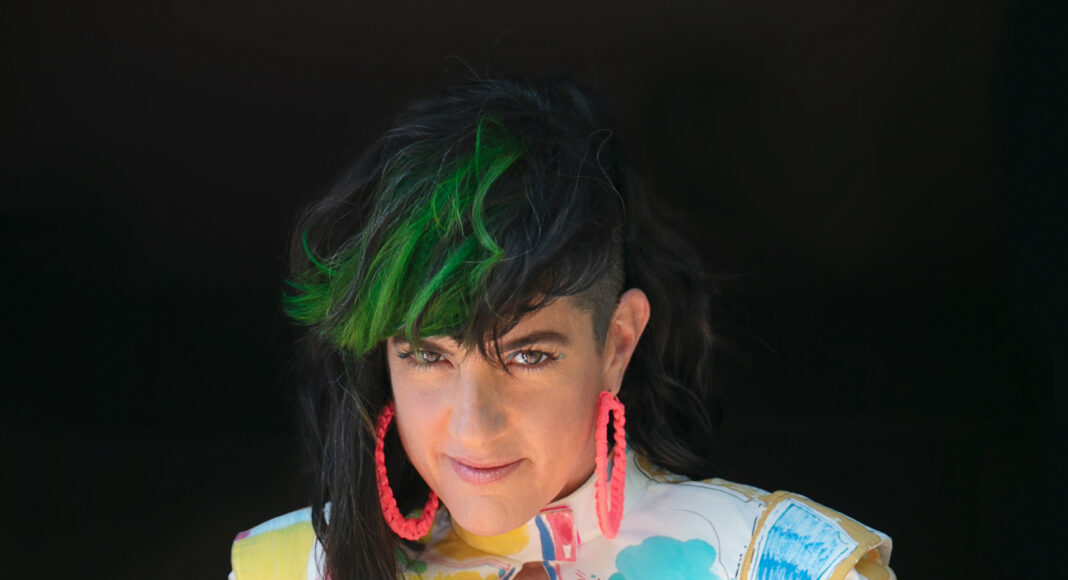Before I spoke to Father John Misty a few years ago, his management had referred to the musician as “Josh” in emails, so I did not doubt the name I should use when he picked up the phone. Even if a surname hadn’t been provided, I wouldn’t have felt discomfort with, “Hello, is this Father John Misty?”
The situation was much different with Bitch. The PR person used the stage name as if it was no different from any other. Email correspondence went like this: “Can I arrange a time for you to speak to Bitch?” “Bitch is available at 10:30am.” “You can call Bitch on Wednesday.” And so on.
“The hell with it,” I thought as I dialed the number.
“Hello? Bitch?”
“Hi!” the voice on the other end of the phone responded gleefully.
“So, I call you Bitch, correct?” It felt like I was breaking the law or something. I had to make sure it was okay before moving forward.
“Yes,” she chuckled. “Bitch is fine.”
Though I now know Bitch’s real name, she made me promise that I wouldn’t use it in this story. If you go to her Santa Cruz performance, Bitchcraft: How Bitch Became Bitch Starring Bitch, you’ll find out (and if you really love spoilers, it’s not difficult to locate online).
“By the end of the show, you will know what my parents named me,” she says as she walks a friend’s dog in Los Angeles. “Having people call me Bitch is like taking away the insult and embracing it. It’s empowering to use a word that’s often used to insult powerful women. I’m all about reclaiming [the word]. We’re finally at a point where we’re reckoning with this stuff.”
Like George Carlin, Bitch is intrigued by word origins, and thinks about why we use certain words as insults. This fascination goes way back, even before Bitch’s first band, the popular queercore folk duo Bitch and Animal, which formed in 1995 and went on to tour with Ani DiFranco, whom they met while playing a gig at a pizza shop in Provincetown. DiFranco signed the band to her label Righteous Babe Records, and co-produced the outfit’s 2001 release Eternally Hard, featuring fan favorite “Best Cock on the Block.” Their song “Pussy Manifesto” fueled a worldwide cult following. However, the pair decided to disband, and Bitch went solo in 2004.
Her music has been featured on The L Word, and she’s toured with the Indigo Girls and even done some acting; she appears in John Cameron Mitchell’s Hedwig and the Angry Inch followup Shortbus.
But everything before Bitch’s 2022 release was preparation, education and inspiration that would culminate in Bitchcraft, which is the story of Bitch coming out of artistic hiding.
It all began with the multi-instrumental talent’s primary tool of the trade, the violin, and expanded from there. Throughout the eight-year period Bitch took to complete the record, the three years she lived with her partner in a log cabin in Northern Michigan was pivotal. After 15 years of the noise and chaos of New York City, Bitch was able to hear her thoughts without distraction. Like Bon Iver’s Justin Vernon, who found his voice while isolated in a cabin in Wisconsin, Bitch’s long and winding road towards Bitchcraft began in those remote woods. During the drive, before even stepping foot inside the rustic cabin for the first time, Bitch began composing “Hello Meadow,” which would become the third track on Bitchcraft.
“I felt like I was this fallen witch,” Bitch says. “As we approached the cabin, I saw this meadow nearby.”
It was like that meadow became a symbol for Bitch; the okay signal to move forward with her art at that log cabin.
“Hello Meadow” is early B-52s meets the Talking Heads, with Bitch’s electric violin sawing through with political dissonance: “Fill your tanks, create the ranks/ Make it cheap and easy, make it all so sleazy. You build your wall with bricks of fear/ When immigration’s why you’re here.”
Many songs that Bitch wrote at the cabin appear on Bitchcraft.
“It gave me space to think about the biggest version of myself that I could be,” she says.
Six years after Bitch began sculpting Bitchcraft, she thought it might be time to call it a day. She needed outside encouragement.
“I played a few things for some people,” she says. “They said, ‘Oh, my god, you have to keep going. You have to put this out.’ If I was left to my own devices, I might have gone off into a corner and shelved [Bitchcraft].”
That was all the momentum Bitch needed. Over the following two years, she enlisted assistance from everyone from the rapper God-des to Faith Soloway, who co-wrote some of the songs. She shapeshifted her sound into something unique: a colossal wall of synths, Bitch’s signature electric violin, Middle Eastern and Apalachin-inspired instrumental interludes and purposeful prose—some sung, some rapped; it’s the world as seen through Bitch’s eyes, and what it means to exist as a woman. Most importantly, Bitchcraft is about surrounding yourself with the people who genuinely care about you and finding joy in life.
“As an artist, you can get bitter and think, ‘Oh, nobody cares, and I’m just pissing in the wind,’” Bitch says. “I feel like at many points I could have easily given up on [Bitchcraft]. I was experiencing creative heartbreak. The reason I saw it through was out of pure encouragement.”
‘Bitchcraft: How Bitch Became Bitch Starring Bitch’ (with Kate Cash) happens Saturday, Nov. 19, 9pm at the Catalyst Atrium, 1101 Pacific Ave., Santa Cruz. $20/$25 plus fees. catalystclub.com.














